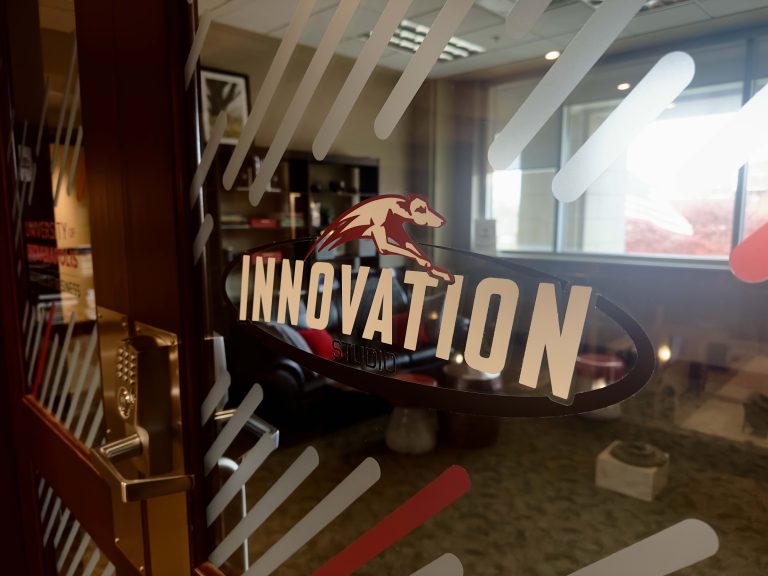Senior communication major Malak Aldawood is Saudi Arabia’s first woman to study electronic media and attends the University of Indianapolis.

Sharia law governs Saudi Arabia, so the rights of women, according to social conventions, are substantially different from that in the United States. While the late Saudi monarchal leader King Abdullah bin Abdulaziz al Saud enacted many women’s rights proclamations, lack of freedom of speech and ability to drive and strict guardian laws still affect the women of Saudi Arabia today, according to the Washington Post. Aldawood intends to become the women’s voice with the knowledge she has gained from her studies.
“I have a new package for next week’s news about Saudi girl’s rights,” she said. “And the community will fight me about it, but my goal is to deliver the Saudi voice, [the] Saudi women’s voices.”
The rights of Saudi women have increased notably in the recent decade. According to the Washington Post, Abdullah opened a coed university named King Abdullah College of Science and Technology in 2009 where women are permitted to not wear their veils, which cover their faces, on campus. In 2011, Abdullah signed a decree granting permission for women to vote and run for election starting in 2015, according to the Washington Post. He also proclaimed that there should be a 20 percent female quota for the Shura Council, which advises the monarchy, and then he appointed 30 women. It is not a position of much power, although it is highly public and gives them a platform from which to speak about women’s rights in Saudi Arabia, according to CNN.
Aldawood came to the United States to study electronic media because females are not permitted to study it in Saudi Arabia. Initially, she went to Middle Tennessee State University in 2011 but came to UIndy in the fall of 2015.
“I really love UIndy,” Aldawood said. “I was really sad when I came here, but UIndy made it very easy for [me] and [is] a comfortable place to do my work. They [people at UIndy] didn’t make me feel different. They didn’t care about my hijab or my religion.… Here Americans can accept my opinions, but there [in Saudi Arabia] they don’t accept it.”
Her primary concern when coming to the United States was if she would be able to wear her hijab on air. Both the producers at MTSU and UIndy TV5 News Director and senior communication major Tanner Alexander did not have a problem with it.
“It wasn’t something that I sat at my desk producing my news show and thinking, ‘I can’t have that on TV. She needs to put her hair down,’” Alexander said. “That’s not my choice to make.… That’s not my judgement call.… If it’s what makes her comfortable—if what it represents to her is more important … than how it looks on TV, [that’s okay]. And it looks good by the way.”
As a child, she saw Jordanian journalist Ola Al-Fares on Middle East Broadcasting Center and Aldawood was in awe.
“When I saw her on TV I immediately wanted to be like her,” she said.
Aldawood’s first published event on social media was about a cancer drive for Saudi Arabian women. She said it resulted in an individual telling her to “go sell some food; we don’t want to see girls on TV.” Following her report, the Saudi community erupted in opposition. Despite the outcry, Aldawood continued to persevere.
“I do not care because I want to deliver their voices,” Aldawood said. “I used to live there. I know the problems. I know what’s going on with us.”
Progression leads to confrontation, according to Aldawood. While Saudi Arabia has had positive change for women’s rights in the past decade, there are still those who believe in strict Sharia Law. Aldawood said that the Saudi community scrutinizes every step she takes.
Alexander said that throughout history there always have been pioneers in social reform that have met opposition similar to what Aldawood faces. He said that like the social activists of the past, Aldawood continues to work against opposition.
“She is paving the way for people who didn’t think this was possible for them,” Alexander said. “I think her tenacity is definitely something other people should admire. So many people are complacent and just okay with whatever they can get. And if that were Malak’s case, she would not be here.”








